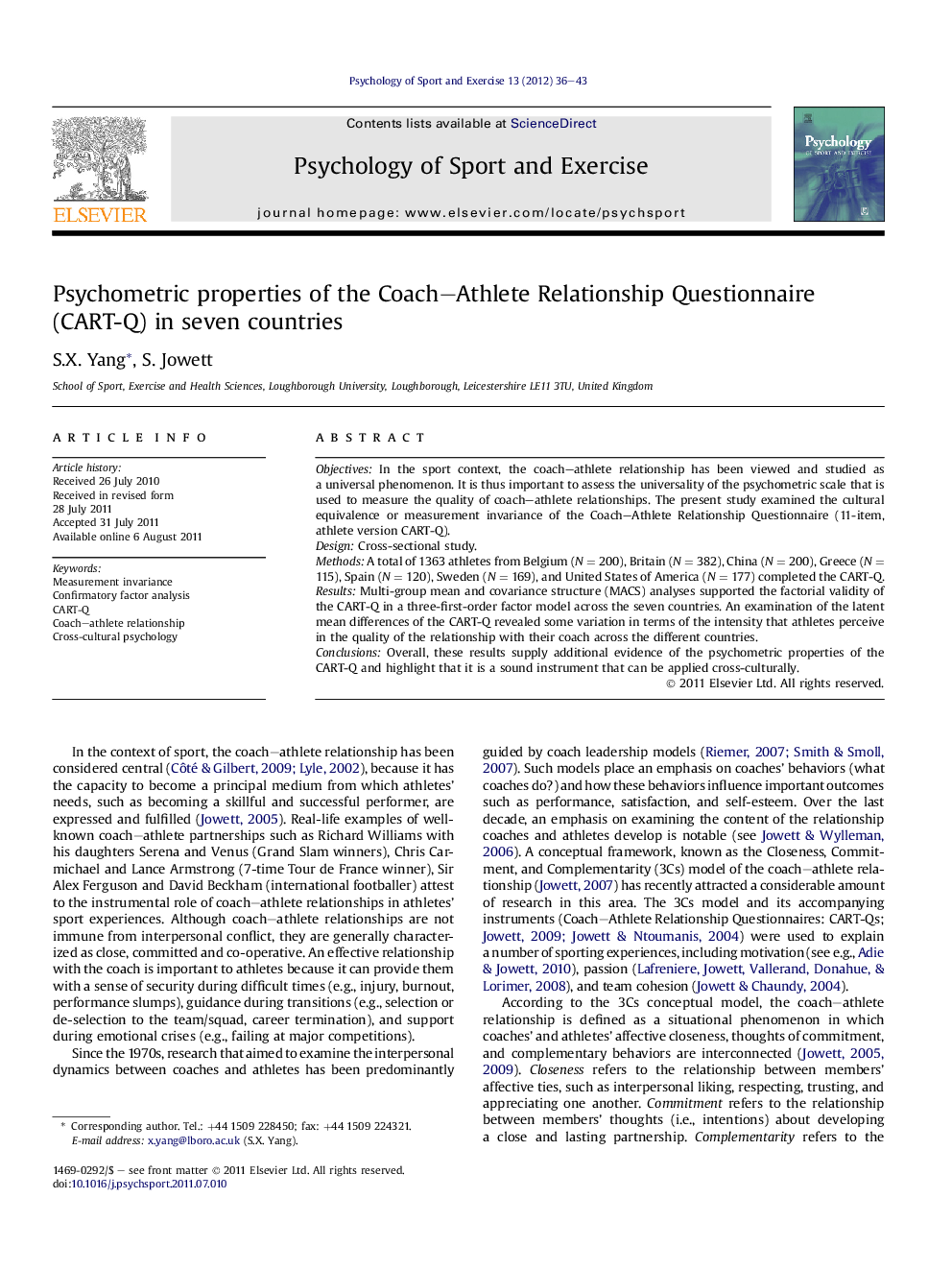| Article ID | Journal | Published Year | Pages | File Type |
|---|---|---|---|---|
| 894377 | Psychology of Sport and Exercise | 2012 | 8 Pages |
ObjectivesIn the sport context, the coach–athlete relationship has been viewed and studied as a universal phenomenon. It is thus important to assess the universality of the psychometric scale that is used to measure the quality of coach–athlete relationships. The present study examined the cultural equivalence or measurement invariance of the Coach–Athlete Relationship Questionnaire (11-item, athlete version CART-Q).DesignCross-sectional study.MethodsA total of 1363 athletes from Belgium (N = 200), Britain (N = 382), China (N = 200), Greece (N = 115), Spain (N = 120), Sweden (N = 169), and United States of America (N = 177) completed the CART-Q.ResultsMulti-group mean and covariance structure (MACS) analyses supported the factorial validity of the CART-Q in a three-first-order factor model across the seven countries. An examination of the latent mean differences of the CART-Q revealed some variation in terms of the intensity that athletes perceive in the quality of the relationship with their coach across the different countries.ConclusionsOverall, these results supply additional evidence of the psychometric properties of the CART-Q and highlight that it is a sound instrument that can be applied cross-culturally.
► The present study has evidenced the cross-cultural validity of the Coach–Athlete Relationship Questionnaire (CART-Q). ► Athletes seem to have different perceptions regarding the intensity of the psychological constructs across 7 countries. ► “Respect” and “Commit” were interpreted differently across cultures.
